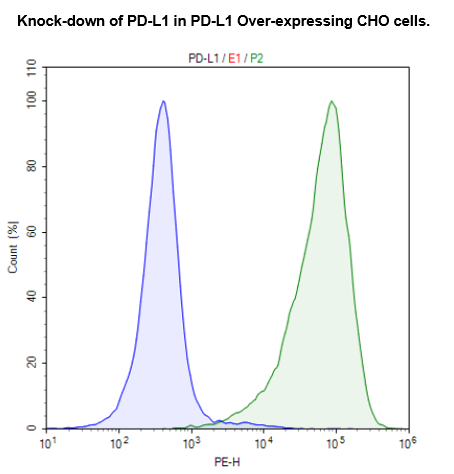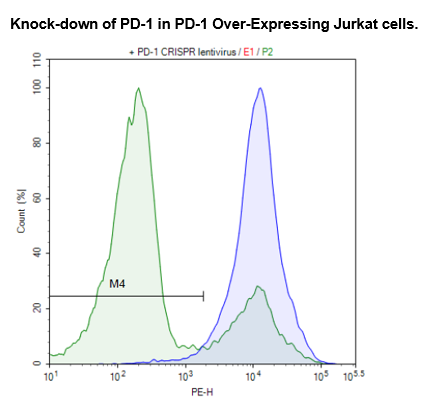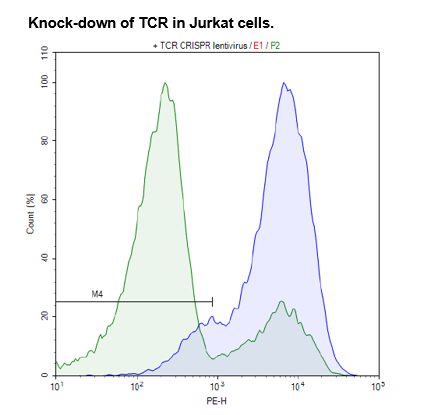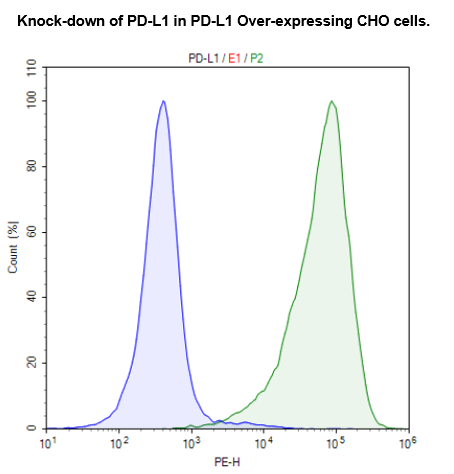
PD-L1 CRISPR/Cas9 Lentivirus (Non-Integrating)
78064
Product group Molecular Biology
Overview
- SupplierBPS Bioscience
- Product NamePD-L1 CRISPR/Cas9 Lentivirus (Non-Integrating)
- Delivery Days Customer7
- CertificationResearch Use Only
- Hazard Informationun3373
- Scientific DescriptionThe binding of Programmed Cell Death Protein 1 (PD-1), a receptor expressed on activated T-cells, to its ligands, PD-L1 and PD-L2, negatively regulates immune responses. The PD-1 ligands are found on most cancers, and the PD-1:PD-L1/2 interaction inhibits T-cell activity and allows cancer cells to escape immune surveillance. The PD-1:PD-L1/2 pathway is also involved in regulating autoimmune responses, making these proteins promising therapeutic targets for a number of cancers, as well as multiple sclerosis, arthritis, lupus, and type I diabetes. The PD-L1 CRISPR Lentiviruses are replication incompetent, HIV-based, VSV-G pseudo-typed lentiviral particles that are ready to be transduced into almost all types of mammalian cells, including primary and non-dividing cells. The particles contain a CRISPR/Cas9 gene driven by an EF1a promoter, along with 4 sgRNA (single guide RNA) targeting human PD-L1 (Programmed Cell Death 1 Ligand 1, CD274, B7 homolog 1 (B7-H1), GenBank accession #NM_021893) driven by a U6 promoter. Note: unlike Human PD-L1 CRISPR/Cas9 Lentivirus (Integrating) (BPS Bioscience, #78057), the Human PD-L1 CRISPR/Cas9 Lentivirus (Non-Integrating) is made with a mutated Integrase, resulting in only transient expression of the Cas9 and PD-L1-targeting sgRNA. While this may minimize potential off-targeting risks due to either prolonged expression or integration of the Cas9, puromycin selection should not be used for more than 48 hours post-transduction, which may lower knockout efficiency.
- Storage Instruction-80°C
- UNSPSC41115812
- SpeciesVirus





